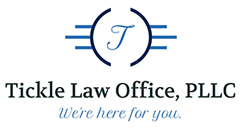Laser devices such as pointers and holograms are typically used for visuals and presentations, but that doesn’t stop them from being dangerous. Even a laser pointer with very low power settings can damage a person’s eyesight when exposed for a long period of time.
This is why using a laser pointer or any other similar device on a law enforcement officer or emergency responder is an assault offense in North Carolina. They may not be deadly weapons, but laser devices can lead to serious felony convictions.
Unlawful laser device use
Per state law, it’s against the law for any person to intentionally direct a laser device at the following:
- Law enforcement officers
- Probation/parole officers
- Detention facility staff
- Firefighters
- EMTs
- Military servicemembers
- Court counselors
- Members of the National Guard
The law also prohibits pointing laser devices at a law enforcement agency animal or search and rescue animal while the animal is performing its duties.
Interestingly, the law also prohibits people from shining laser devices on the head or face of anyone not covered under the law enforcement or emergency personnel definition.
Penalties for criminal use of laser devices
A violation of the state’s laws on laser devices is a Class 1 felony. On conviction, a person faces up to two years of imprisonment.
If the person unlawfully used a laser device on a law enforcement or search and rescue animal. The offense is a Class A1 misdemeanor instead. This offense applies if the laser device caused any harm to the animal, whether physiological or behavioral. A conviction for this offense leads to up to 150 days of jail time or community punishment.
The offense is an infraction if the person unlawfully uses a laser device on anyone else who isn’t law enforcement or an emergency responder. This is punishable by a maximum fine of $100.
Using a laser device at a law enforcement or emergency responder is a serious crime, especially if there’s an intent to harass the person from performing their official duties. While it’s an infraction, North Carolina also prohibits shining the devices on anyone who isn’t police, military, or emergency personnel. Anyone who faces charges should consider speaking with a legal professional. An attorney may be able to help an accused person build their defense and protect their rights in court.

